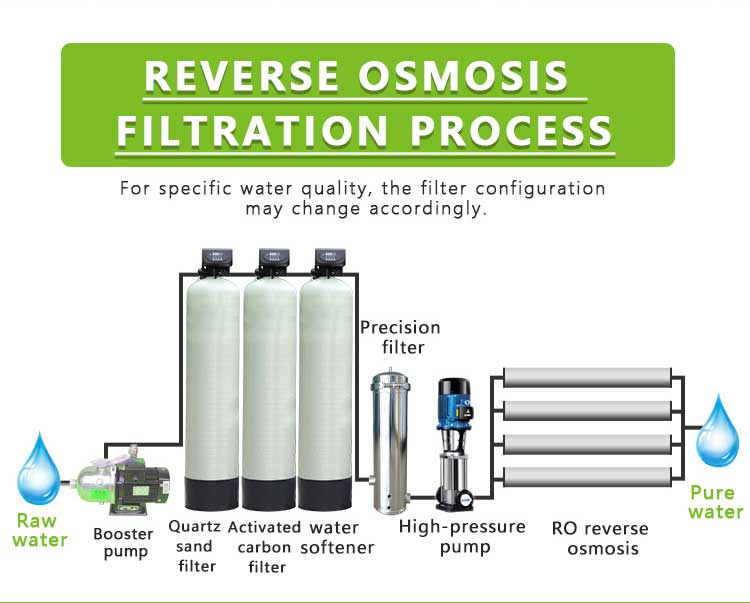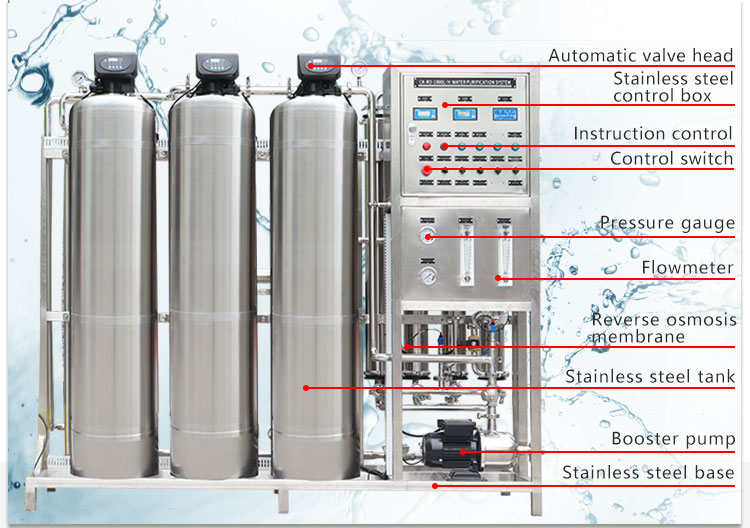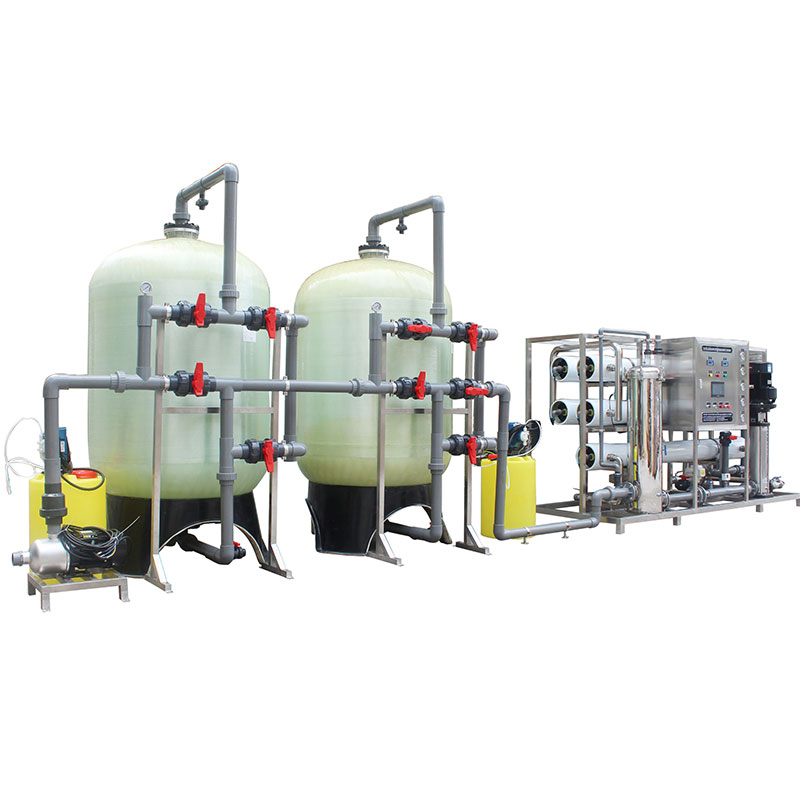Is a water treatment machine worth buying? What are the pros and cons?
Many families are beginning to consider installing a water treatment machine to ensure the quality of their daily drinking water. So, is a water treatment machine worth buying? What are its advantages and disadvantages?
This article will comprehensively analyze the various types, functions, advantages and disadvantages of water treatment machines to help readers make wise purchasing decisions.

What is a water treatment machine?
A water treatment machine is a device used to purify and improve the quality of household water. Its main functions include removing impurities, chemical pollutants, heavy metals, bacteria and viruses from water, etc., to provide purer and safer drinking water.
Common types of water treatment machines on the market include:
1. Reverse osmosis (RO) water purifier: removes dissolved solids and microorganisms from water through semi-permeable membrane filtration.
2. Ultrafiltration (UF) water purifier: uses ultrafiltration membrane to remove suspended matter, colloids and some microorganisms.
3. Activated carbon water purifier: absorbs organic matter and odor in water through activated carbon.
4. Ultraviolet (UV) sterilizer: uses ultraviolet rays to kill bacteria and viruses in water.
5. Ion exchange water softener: removes hardness ions (calcium, magnesium) from water through ion exchange resin.
What are the advantages of water treatment machines?
1. Providing safe drinking water
The main advantage of water treatment machines is that they can significantly improve the safety and quality of household water. By removing harmful substances from the water, water treatment machines ensure that the water consumed by family members is purer and reduces the risk of waterborne diseases.
2. Improve the taste of water
Many water treatment machines, especially activated carbon water purifiers, can remove chlorine, odors and organic matter from the water, making the water taste fresher and purer, improving the drinking experience.
3. Protect household appliances
Ion exchange water softeners can remove hardness ions from water and prevent scale from accumulating in household appliances such as water heaters, washing machines and dishwashers, thereby extending the life of these devices and reducing maintenance and replacement costs.
4. Environmental protection and conservation
Compared with bottled water, purified water produced by water treatment machines is more environmentally friendly and reduces the use and waste of plastic bottles. In the long run, the cost of using water treatment machines is also lower than purchasing bottled water, saving money for families.
5. Multifunctional selection
Different types of water treatment machines can provide multiple functions according to family needs. For example, reverse osmosis water purifiers provide highly pure drinking water, while ultrafiltration water purifiers retain some minerals and are suitable for daily drinking and cooking.

What are the disadvantages of water treatment machines?
1. High initial investment
The purchase cost of water treatment machines is high, especially high-end models such as reverse osmosis water purifiers and ultraviolet sterilizers, which may require a budget of thousands of yuan or even higher. This is a considerable burden for some families.
2. Maintenance cost
Water treatment machines require regular replacement of filter cartridges, cleaning and maintenance to ensure their normal operation and water quality safety. These maintenance costs are not negligible when added up, especially for reverse osmosis water purifiers with high filter cartridge replacement costs.
3. Wastewater treatment issues
Reverse osmosis water purifiers will produce a certain amount of wastewater during the filtration process, which is generally 2-3 times the water output. This not only increases the waste of water resources, but may also lead to increased water bills.
4. Installation and space requirements
Some types of water treatment machines, such as reverse osmosis water purifiers and water softeners, are more complicated to install and may require professional installation. In addition, these devices usually occupy a certain amount of kitchen or bathroom space and are not suitable for families with limited space.
5. Water quality dependence
Different water treatment machines have different dependence on water quality. For example, ultrafiltration water purifiers have certain requirements for water pressure, and too low water pressure will affect the water purification effect. Reverse osmosis water purifiers have higher requirements for the quality of incoming water. If the water quality is too bad, a pre-filter may be required for pre-treatment.
What are the popular water treatment machine brands on the market?
When choosing a water treatment machine, brand and reputation are important considerations. The following are some popular water treatment machine brands on the market:
1. A.O. Smith
A.O. Smith is a world-renowned water treatment equipment manufacturer known for its high-quality reverse osmosis water purifiers and water softeners. Its products use advanced filtration technology to provide high-quality water purification solutions.
2. CHUNKE
As a well-known water treatment manufacturer in China, CHUNKE has a wide range of water purification equipment, including reverse osmosis water purifiers, ultrafiltration water purifiers and brackish water purifiers to meet the needs of different families.
3. 3M
3M's water purifiers are known for their excellent filtering effect and durability, and are widely used in household and commercial water treatment.
4. Haier
Haier's water treatment equipment covers everything from basic activated carbon water purifiers to high-end reverse osmosis water purifiers, and has won the trust of consumers with its high cost-effectiveness and high-quality after-sales service.
5. Hanshill
Hanshill is a well-known German water treatment brand. Its products are known for their high efficiency, energy saving and environmental protection, especially in the field of pre-filters and water softeners.

How to choose a suitable water treatment machine?
When choosing a water treatment machine, consumers should make comprehensive considerations based on the following points:
1. Water quality testing
First, the water quality of household water should be tested to understand the main pollutants and hardness in the water, so as to choose the right water treatment equipment. For example, if there are more heavy metals and dissolved solids in the water, a reverse osmosis water purifier is a good choice; if the main problem is hard water, a water softener is more suitable.
2. Budget
Choose a suitable water treatment machine according to the family budget. Although high-end equipment has superior performance, the initial investment and subsequent maintenance costs also need to be considered. If the budget is limited, you can choose a mid-range product with a high cost-effectiveness.
3. Usage requirements
Different families have different needs for water purification, and the specific usage scenarios should be considered when choosing a water treatment machine. For example, if it is mainly used for drinking water, you can choose a reverse osmosis water purifier; if it is used to improve the water use of the whole family, a water softener or a whole-house water purification system is more suitable.
4. Brand and after-sales service
Choose products with well-known brands and good after-sales service to ensure that problems encountered during the use of the equipment can be solved in time. At the same time, high-quality after-sales service also includes regular filter replacement and equipment maintenance to ensure the continuous stability of the water purification effect.
Conclusion
As an important equipment for improving the quality of household water, water treatment machines have significant advantages, such as providing safe drinking water, improving the taste of water, protecting household appliances, and environmental protection. However, its high initial investment and maintenance costs, wastewater treatment problems, and installation complexity are also factors that need to be considered.
When choosing whether to buy a water treatment machine, consumers should make a comprehensive assessment based on their own water quality, budget, and usage needs, and choose the most suitable product. Through reasonable selection and use, water treatment machines can provide families with a safer, healthier and more comfortable water experience.






